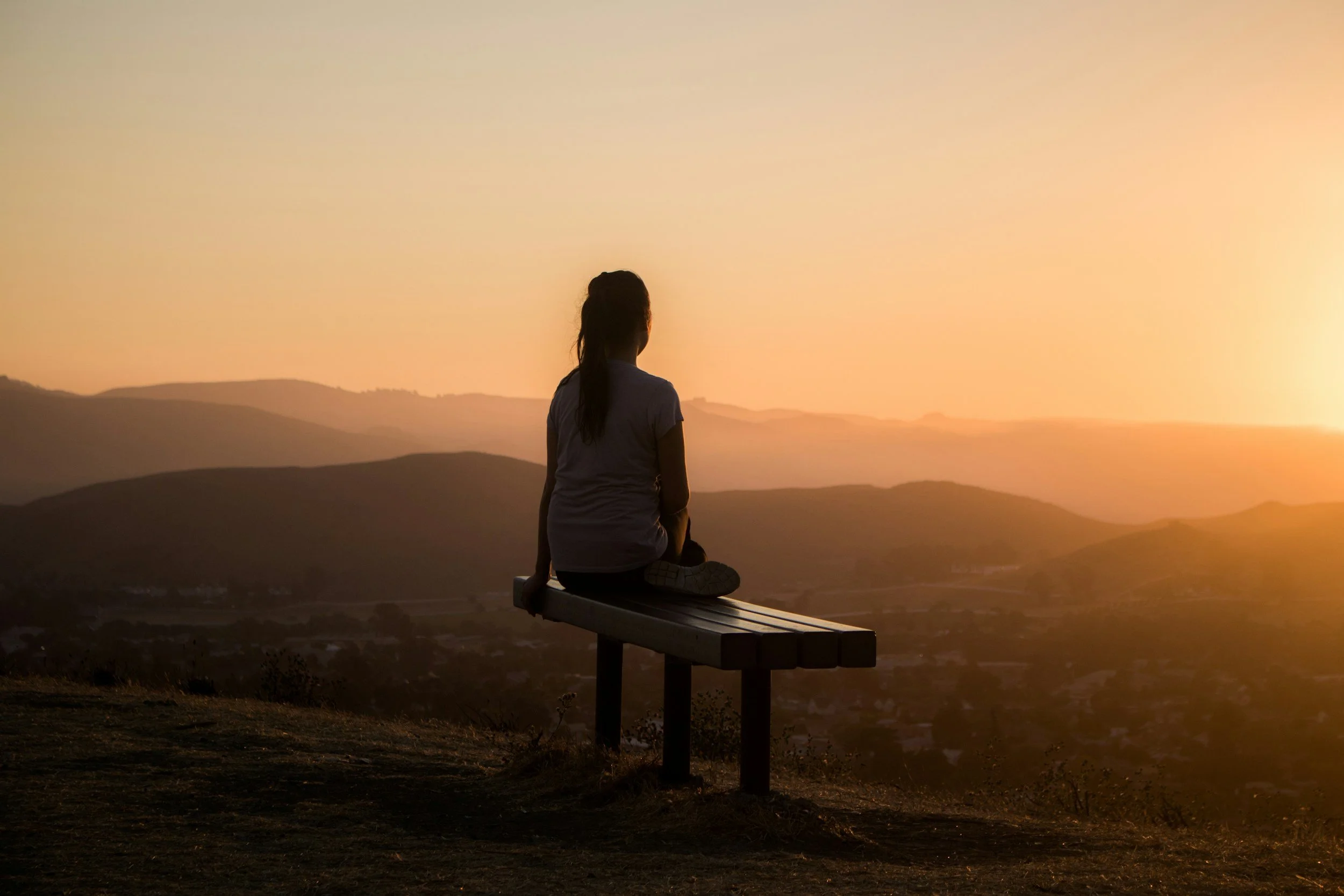Fear Wasn’t the Problem—My Lack of Self-Trust Was
It took me a long time to recognize how much fear had quietly shaped my life.
I’m not talking about the kind of fear that keeps you safe from danger—this was more subtle. The fear of failure. The fear of not getting it right. The fear of being seen starting over. The fear of disappointing others. The quiet, persistent fear that keeps you stuck in what’s familiar, even when it’s no longer working.
For me, that recognition came through illness.
When I got sick, my body didn’t give me a choice—it demanded change. Overnight, I had to rethink how I ate, how I drank, how I moved, how I allowed people to access my energy. It wasn’t one small shift. It was an overhaul. The kind that touches everything.
I remember getting my diagnosis and feeling so overwhelmed with the severity of the situation. How was I going to move forward? I didn’t want this moment to define me. I knew that it would always be a part of me, but I never wanted it to be all of me.
And one of the biggest lessons I learned wasn’t about food or supplements or even how to manage my stress.
It was self-trust.
The deep, unwavering belief that I could handle whatever came next.
That I was strong enough. Capable enough. Worthy enough to receive these changes and grow from them.
Self-trust doesn’t get talked about enough when it comes to change.
But it’s so vital. Without it, we stay stuck in survival mode, second-guessing our next move. With it, we’re able to move forward—even in the dark.
Over the past year, I’ve had to watch myself in real time as my old self and my new self fought it out.
Old patterns tried to pull me back into what was easy, familiar and safe. And I’ve had to choose—again and again—to stay aligned with the version of me I know I’m becoming.
It hasn’t been seamless. But it’s been real. And it’s been worth it.
Here’s what I know to be true:
We don’t resist change—we resist the unfamiliar.
And we’d rather stay exhausted in a life we understand than risk aliveness in one we don’t.
Geez! Talk about a gut punch.
So, what often gets in the way?
Sometimes it’s not fear in the traditional sense—it’s what I call spiritual entertainment.
It’s the phase where we convince ourselves we’re evolving because we’re reading the books, listening to the podcasts, following all the right people.
But collecting information isn’t transformation.
Growth doesn’t happen when we consume. It happens when we apply.
Knowing more won’t change your life.
But trusting yourself enough to act on what you already know—that will.
We all have things we’re avoiding. Conversations we don’t want to have. Decisions we’re putting off. Changes that feel too big, too scary or too uncertain. So ask yourself:
What are five things I’ve been avoiding?
What’s the absolute worst thing that could happen if I followed through on them?
Is that scenario really likely?
And which is worse—that, or regret?
Courage isn’t about not feeling fear.
It’s about moving forward with fear in the passenger seat—knowing it’s there, but not letting it drive.
Change, in reality, is not linear.
There’s no straight line between awareness and transformation. The path winds. You move forward, then slip back. You recommit. You recalibrate. You recycle. And you keep going.
Here’s how the change process often unfolds:
Precontemplation – You’re not thinking about changing. You may not even realize anything’s off.
Contemplation – You become aware something isn’t working. You start to weigh the options.
Preparation – You begin to plan. You consider what it would look like to do things differently.
Action – You make a move. You step into change.
Maintenance – You stick with it. Your new habits begin to settle in.
Termination – You’re no longer tempted to go back. The change has integrated.
And then there’s recycling, the part that often gets ignored.
That moment when you slide back into an old habit or thought pattern. It can feel like failure—but it’s not.
It’s simply your nervous system doing what it was designed to do: protect you from the unknown.
This is why self-trust matters so much.
Because your brain would often rather keep you in discomfort that feels familiar than let you risk the unknown that might actually be better for you.
And that’s why real change is more emotional than logical.
We don’t change just because we know what to do.
We change because we feel the cost of staying the same.
We are either moving toward pleasure or away from pain.
The path to lasting fulfillment often requires giving up short-term comfort in exchange for long-term clarity, alignment and joy.
If you’ve been feeling stuck lately—because moving forward feels scary, messy, or unknown—I want to gently offer you this:
What would your life look like if you trusted yourself more than you feared change?
